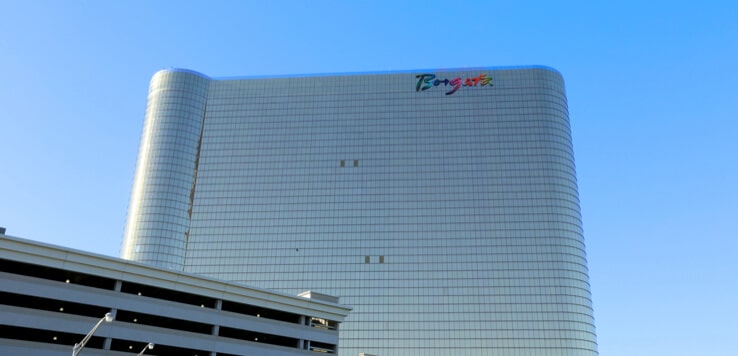The key news in what had been the seemingly never-ending court feud between poker Hall of Famer Phil Ivey and Borgata casino in Atlantic City came in early July when both sides told a federal judge they had reached a settlement over nearly $10 million that Ivey won at mini-baccarat during four visits to the casino in 2012.
But a stipulation insisted upon by the judge last month didn’t get cleared until Monday, when Borgata’s attorneys forwarded a letter from lawyers for the card manufacturer in the case that agrees to the terms of Ivey and Borgata’s settlement deal.
Gemaco, which produced the purple-backed mini-baccarat cards at the heart of the matter, was part of “at least two of the Court’s Orders and Opinions,” according to Ivey’s attorney Louis Barbone.
It turns out that the attorney for Gemaco in the saga recently moved out of New Jersey, but an associate stepped forward to knock down just about the final hurdle.
In 2017, Ivey — a central Jersey native — had his request to enter a filing in the U.S. Third Circuit Court of Appeals delayed, along with co-defendant Cheung Yin Sun, because Borgata had a pending lawsuit against Gemaco.
Ivey lost a ruling by U.S. District Court Judge Noel Hillman in 2016 that concluded that while there was no legal fraud involved, the actions of Ivey and Sun “effectively marked the cards” as surely as if one bent the tip or snuck a pencil mark onto a card back.
A $10 million blame game
Borgata’s attorneys blamed Gemaco for the embarrassing fiasco, claiming that supplying defective cards constituted a breach of their agreement and caused Ivey to win so much money.
A judge ruled in favor of the card maker in 2018, somewhat simplifying a very complex case.
As Hillman wrote in the Gemaco Opinion: “It is not Gemaco’s cards that were the ‘but for’ cause of Borgata’s losses — but rather all the subsequent required elements requested by Ivey and agreed to by Borgata, each a required and integral part, which together caused Borgata’s losses.
“It is true that the scheme would not have worked without asymmetrical cards. They were necessary for the scheme. But they were equally insufficient.”
Hillman added of the MGM-owned casino: “Borgata provided the dealer who turned the cards and Borgata permitted her to do so. Borgata provided the automatic shuffler. Borgata did not substitute a new deck of cards during the entire play sessions, which lasted for over sixteen hours each time. Borgata even provided the requested type of playing cards.”
Simplifying the complex
Here is Hillman’s summary of the core of the saga:
“Defendants Phillip D. Ivey and [Cheung] Yin Sun played Baccarat at the Borgata Hotel Casino & Spa in Atlantic City, four occasions in 2012. They won $9,626,000.
“In order to do so, they used a scheme called ‘edge-sorting,’ where Sun, after learning the face value of certain strategically important cards, would have the dealer turn those cards so that they could be distinguished from other cards in the deck by minute asymmetries on the repeating pattern on the backs of the cards as they were dealt.
“Ivey and Sun would then be able to see the leading edge of the first card in the shoe before it was dealt, giving them ‘first card knowledge,’ and Ivey would bet accordingly.”
“The scheme required Borgata’s cooperation in granting Ivey a private table; approval of having a guest, Sun, by his side; the presence of a dealer fluent in Mandarin Chinese; a single 8-deck shoe of purple Gemaco playing cards to be used for the entirety of each session of play; and an automatic card shuffling device to be used to shuffle the cards after each shoe was dealt — which retained the orientation of each card that Sun requested to be turned.
(For more on this “down the rabbit hole” saga, see NJ Online Gambling‘s analysis from last month here.)
Attention, future Academy Awards voters
Also, appropriately there is a Hollywood movie in the works starring Awkwafina — there are so many stranger-than-fiction plot twists that anyone intimately familiar with the case could have predicted it — but Ivey is to be a mere supporting character.
As for Sun’s motivations and choice of casinos to exploit — sure to be a key subplot in the movie — as I wrote in 2016, there were those three horrific weeks in prison, a four-year obsession with playing card backs, “plus a million-dollar score in 2011, a jaguar tattoo …”
By the time movie gets made, much less heads to theaters, this pandemic should be behind us. And no matter how much or how little anyone knows about this saga, the unfolding of events on screen has the feel of a blockbuster — call it Ocean’s Two.
Photo by Racheal Grazias / Shutterstock.com









